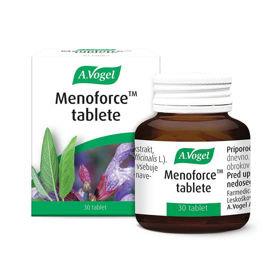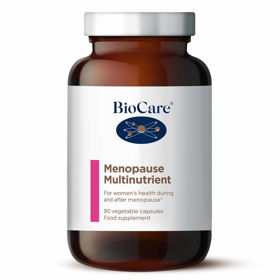Customer question:
Where can I buy a menopause test? Anonymous customer's question
Pharmacist's answer:
The menopause test usually measures the level of follicle-stimulating hormone (FSH) in the body. Elevated FSH levels may indicate that a woman is approaching or has reached menopause, although it is worth noting that FSH levels can fluctuate during the menstrual cycle.
If you are interested in purchasing a menopause test, here are some options:
- Pharmacy: many chain and independent pharmacies offer over-the-counter menopause tests in the same section where you'll find pregnancy tests and ovulation predictor kits.
- Health stores: Some specialty health stores may offer menopause tests and other health-related testing kits.
- Clinics and health care providers: Although this is not a self-test, your doctor or specialist clinic may offer a blood test to check your FSH and other essential hormone levels.
If you think you have menopausal symptoms or are unsure about the results of a home test, it makes sense to consult your doctor. They can provide a more detailed analysis, discuss symptoms, and offer guidance on managing menopause.
What are the first symptoms of menopause?
Menopause marks the end of a woman's reproductive years, usually diagnosed when a woman has not had a period for 12 consecutive months. The period before menopause, which usually occurs in women in their 40s or 50s, is known as perimenopause.
During perimenopause, the ovaries gradually reduce estrogen production, leading to various symptoms. The experience of menopause can vary widely among women, with some having few symptoms and others with many that significantly affect their daily lives.
Here are some common early symptoms associated with perimenopause and menopause:
- Irregular periods: this is often one of the first signs. The time between periods can be longer or shorter, and the flow can be light or heavy.
- Hot flushes: a sudden warmth that spreads over the upper body, often accompanied by flushing and sweating. They can last from a few seconds to a few minutes.
- Night sweats: hot flashes that occur at night and can cause sleep disturbances.
- Sleep problems: difficulty falling asleep or staying asleep.
- Dry vagina: Decreased estrogen levels can cause dryness, itching, and discomfort, especially during sexual activity.
- Mood changes: Many women experience mood swings, irritability, or even depression during perimenopause.
- Loss of bone density: Decreased estrogen levels can cause bone loss, increasing the risk of osteoporosis.
- Libido changes: some women experience a decreased sex drive.
- Dry skin, eyes, or mouth: changes in estrogen levels can affect moisture levels in different body parts.
- Bladder problems: some women may urinate more often or even experience urinary incontinence.
- Breast tenderness: similar to premenstrual breast tenderness but may persist or be more pronounced.
- Worsening of pre-existing conditions: Conditions such as migraines or mood disorders may worsen during menopause.
- Cognitive changes: some women report problems with memory or concentration.
These symptoms may appear years before menopause and may persist for years after. Although these symptoms are expected during the menopause transition, they can also be related to other medical conditions or factors. It is, therefore, essential that you discuss any significant or worrying symptoms with your doctor.
Interesting reading: Tincture 68 lekarna
Interesting reading: Homeopathic pharmacy










 Facebook
Facebook
 Instagram
Instagram
 info@moja-lekarna.com
info@moja-lekarna.com

